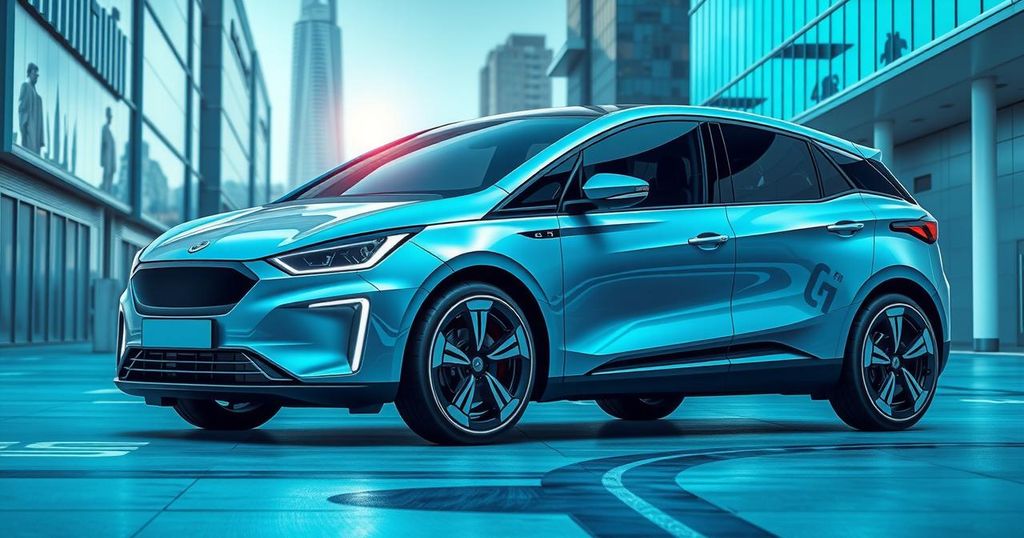Cars
ACQUISITION, AP, ASIA, AUTOMOTIVE, AUTOMOTIVE INDUSTRY, BEIJING, BRAZIL, BYD, CHINA, EUROPE, EUROPE/ASIA, GREAT WALL MOTORS, HAVAL, HEBEI, INVESTMENT, INVESTMENTS, JACK WE, JACK WEY, MEXICO, NORTH AMERICA, ORA, RUSSIA, SHANGHAI, SOUTH AMERICA, TANK, THAILAND, TURKEY, UKRAINE, WEI, WEI JIANJUN
Sofia Rodriguez
0 Comments
Chinese EV Manufacturers Navigate Global Expansion Amid Domestic Competition
Chinese EV makers are rapidly expanding globally, offering affordable and technologically advanced vehicles. Companies like BYD, Great Wall, Geely, and Chery are key players, each employing unique strategies to penetrate international markets amidst fierce domestic competition. Their advancements in technology and strategic partnerships are notable highlights in this evolving automotive landscape.
The automotive landscape is dramatically evolving as Chinese electric vehicle (EV) manufacturers expand globally, offering affordable and technologically advanced vehicles. Key players such as BYD, Great Wall Motors, Geely, and Chery Automobile are competing not only within China but also in international markets, motivated by the need for scale amid fierce domestic competition. Notably, these companies are distinct from state-operated enterprises like SAIC and BAIC, often led by private entrepreneurs with diverse backgrounds.
Great Wall Motors, under the leadership of Chairman Wei Jianjun, has introduced various brands including Haval and Ora. Despite a nearly 15% decrease in domestic sales last year, the company’s net profit surged over 80%. With factories in locations such as Russia and Brazil, Great Wall has strategically acquired existing plants from competitors to facilitate its global reach and continues to focus on producing the Haval H6 and GWM Poer pickup trucks.
Chery Automobile, a pioneer in overseas exports among Chinese automakers, has sold over 15 million vehicles across various models, particularly in emerging markets like Turkey and Ukraine. In 2022, Chery sold 2.6 million vehicles abroad and aims for 3 million by 2025. The company is expanding production capacity with new factories in Russia and Spain while pursuing partnerships with firms such as Jaguar Land Rover and Huawei.
BYD has distinguished itself by manufacturing more electric vehicles than Tesla, with 3.52 million units sold in China last year—a 28% increase. Its advancements in battery technology are complemented by the recent development of rapid EV charging stations capable of quick charges within five to eight minutes. BYD’s product range includes both affordable models, like the Seagull at around $12,000, and premium offerings approaching $40,000.
Geely Auto, founded by businessman Li Shufu, has made notable international acquisitions, including Volvo and a stake in Lotus Capital. The company recently launched sales of Geely EX5 SUVs in Australia and New Zealand, thereby enhancing its global presence. Geely also owns Zeekr, a premium EV brand, and has formed partnerships with renowned automotive manufacturers such as Daimler AG and Renault SA.
Competing in China is intense, with Wuling, a joint venture between SAIC Motor, General Motors, and Guangxi Auto, capturing significant sales. It represents the second-best-selling EV brand in China, although it still trails behind BYD and Tesla. Alongside these brands, other notable names in the Chinese EV market include Nio, Xpeng, Li Auto, and Leap Motor, with established automakers like Dongfeng Motor Group and Changan Automobile also entering the race.
In summary, Chinese electric vehicle manufacturers are making significant strides in global markets, driven by a combination of innovative technology, competitive pricing, and strategic partnerships. Companies like BYD, Great Wall, Geely, and Chery are leading this charge, each with unique strengths and strategies. As the domestic market remains competitive, establishing a global presence has become crucial for these automakers as they seek to capitalize on new opportunities.
Original Source: www.usnews.com




Post Comment